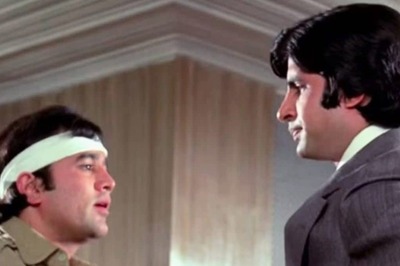
views
A Congress MP has introduced a Bill in the Lok Sabha that seeks to put a limit on the number of “baratis” to be invited to 50 people and dishes to be served in weddings to 10 in a bid to prevent “wasteful expenditure”.
Congress MP Jasbir Singh Gill introduced ‘The Prevention of Wasteful Expenditure on Special Occasions Bill 2020’ in the Lok Sabha on August 4. “The Bill aims to prevent wasteful expenditure on special occasion such as weddings and festivals with a view to bring positive change for the lives of the underprivileged and destitute,” he told the Parliament.
Introduced Private Members Bill "Prevention of Wasteful Expenditure on Special Occasions Bill". HIGHLIGHTS Not more that 50 people in BaratNot more than 10 dishes to be served
Not more than Rs 2500 in Shagan or Gifts
Will help in improving sex ratio
No more foeticide@IYC pic.twitter.com/jyq4wY3rSN
— Jasbir Singh Gill MP official account (@JasbirGillKSMP) August 4, 2023
In a tweet highlighting the key provisions of the Bill, the Congress MP notes that it restricts the number of attendees in a Barat, which is capped at a maximum of 50 people. The Bill also proposes a limitation on the number of dishes served at such occasions, with a cap set at no more than 10.
Another crucial feature of the Bill focuses on restricting the monetary value of “shagan” or gifts exchanged during special occasions, setting the limit at Rs 2,500.
In addition, the proposed legislation seeks to contribute positively to the improvement of the sex ratio and tackle the issue of foeticide.
No Big Fat Weddings
The MP from Khadoor Sahib in Punjab aims to eradicate the culture of lavish weddings that burdens the bride’s family financially. According to an Indian Express article, the MP said stories of people selling their properties or taking bank loans to finance extravagant marriages have prompted the introduction of the Bill. By curbing unnecessary spending on weddings, the legislation hopes to combat female foeticide and shift perceptions of girls from being seen as “burdens”, he said.
Gill’s inspiration for the Bill came from attending a wedding in Phagwara back in 2019. Witnessing an excessive display of 285 trays of dishes, he observed that a staggering 129 trays remained untouched, resulting in food wastage.
Main Provisions of the Bill
The Bill proposes three key provisions for weddings: limiting the total number of guests from both the bride and groom’s families to 100, capping the number of dishes served at 10 and restricting the value of gifts to Rs 2,500.
Additionally, the legislation encourages a shift away from extravagant gifts, advocating for donations to support the poor, needy, orphans, and other vulnerable sections of society or NGOs.
Gill expressed his personal commitment to these principles by implementing them within his own family. When marrying off his son and daughter this year, he restricted the guest list to 30 to 40 attendees, he said.
Prior ‘Wasteful Expenditure’ Bills
In December 2017, Gopal Chinayya Shetty, a BJP leader and Lok Sabha MP from Mumbai North, introduced a private member bill aimed at preventing and prohibiting extravagant expenses on marriages. The bill sought to address the issue of lavish and unlimited spending on weddings and related ceremonies across the country, with a focus on curbing sheer extravagance and excessive expenditures.
In the same year, Congress MP Ranjeet Ranjan, wife of MP Pappu Yadav, introduced ‘The Marriages (Compulsory Registration and Prevention of Wasteful Expenditure) Bill, 2016′. With a focus on discouraging the show of wealth and reducing social pressure on poor families to overspend, it sought to require families intending to spend over Rs 5 lakh on a wedding to declare the amount in advance and contribute 10 per cent to a welfare fund supporting the marriages of poor and Below Poverty Line families’ daughters. The proposed legislation mandated the registration of all marriages within 60 days of solemnisation.




















Comments
0 comment